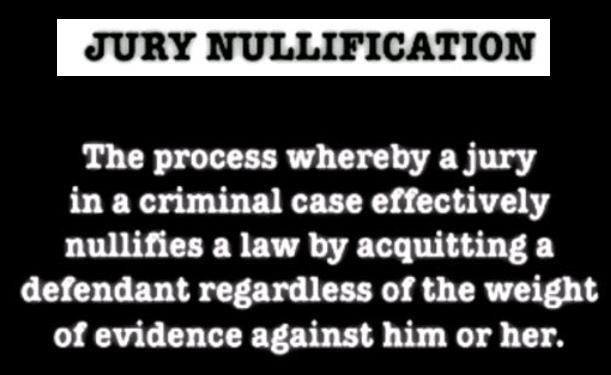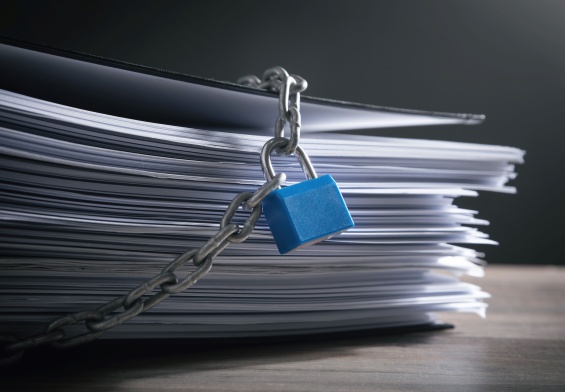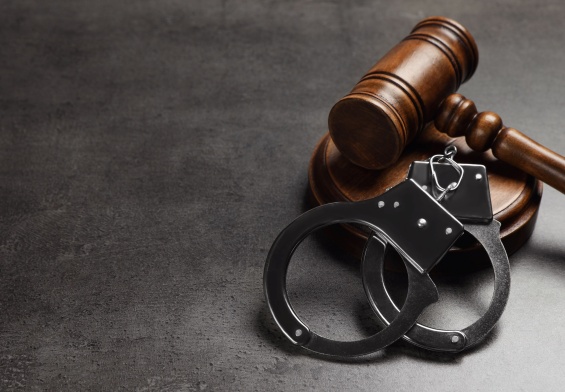Imagine sitting on a jury, convinced the defendant broke the law. But what if following the law feels unjust? This is where jury nullification comes into play—a legal gray area where a juror’s conscience can outweigh the letter of the law.
Jury nullification is a powerful yet often misunderstood concept. In this post, we’ll clarify the meaning of jury nullification, its historical context, famous cases, and what happens if it’s mentioned in court.
Jury Nullification Definition
At its core, jury nullification occurs when a jury delivers a “not guilty” verdict despite believing that the defendant has broken the law. This decision isn’t based on the evidence or legal arguments presented in court. Instead, it reflects the jury’s belief that the law itself is unjust, the punishment is too harsh, or applying the law in that specific case would result in an unfair outcome.
Nullification works because a jury’s not guilty verdict cannot be overturned, and jurors cannot be punished for their decision. Although it’s not an officially recognized right, jurors inherently have this power due to the independence of the jury system.
History of Jury Nullification
Jury nullification has deep historical roots in American legal history. One of the earliest recorded cases was the trial of William Penn in 1670. Penn, a Quaker, was charged with unlawful assembly for preaching in public. Despite clear evidence against him, the jury refused to convict. The judge was furious, even imprisoning the jurors, but they stood firm. This case helped establish the principle of jury independence.
During the 19th century, juries in northern states frequently nullified convictions under the Fugitive Slave Act, refusing to convict individuals who helped enslaved people escape to freedom. This reflected the growing abolitionist sentiment in the North.
The Prohibition era also saw widespread jury nullification. Many jurors declined to convict defendants accused of alcohol-related crimes, demonstrating the public’s opposition to the laws. In fact, Prohibition’s eventual repeal was due in part to how difficult it was to convict offenders.
Famous Jury Nullification Cases
Some famous jury nullification cases have had a lasting impact on the legal system:
- The Trial of William Penn (1670): A landmark case that established the principle of jury independence when jurors refused to convict Penn despite judicial pressure.
- Fugitive Slave Act Trials (1850s): Juries in northern states often acquitted individuals charged with helping enslaved people escape, challenging federal laws supporting slavery.
- Prohibition Era Acquittals (1920s): Many juries refused to convict defendants for alcohol-related offenses, contributing to the eventual repeal of the 18th Amendment.
- Vietnam War Protest Cases (1960s–1970s): Juries sometimes acquitted anti-war protesters in opposition to the Vietnam War.
These are just a few examples of how jury nullification can influence legal outcomes and even drive social change.
What Happens If You Mention Nullification in Court?
Although jurors have the power to nullify, mentioning jury nullification in court can have legal consequences. It’s normal for judges to prevent attorneys from explicitly encouraging jurors to nullify. Defense lawyers who attempt to argue for jury nullification risk objections, and judges often provide strict instructions to jurors to decide cases based just on the evidence and the law.
In some cases, individuals who distribute information about jury nullification near courthouses have faced legal trouble. For example, in Colorado, activists were arrested for handing out pamphlets about jury nullification near a courthouse. While the charges raised First Amendment concerns, they highlighted the legal system’s discomfort with open discussions about jury nullification during trials.
Why Some Support Jury Nullification
Supporters argue that jury nullification acts as a defense against unjust laws and government overreach. It allows jurors to reflect community values in the justice system, particularly when laws lag behind social norms. For example, during Prohibition, jurors often refused to convict individuals for alcohol-related offenses because they disagreed with the law itself.
Jury nullification also empowers ordinary citizens to act as a preventative measure against legislative and judicial misconduct. When laws are unjust or subject to unfair applications, jurors can prevent that unjust outcome, even if it means going against the letter of the law.
Criticisms of Nullification
Despite its historical significance, jury nullification remains controversial. Critics argue that it undermines the rule of law by allowing jurors to make decisions based on personal beliefs rather than legal principles. This can lead to inconsistent verdicts and legal uncertainty, as similar cases might have different outcomes depending on the jury.
There’s also concern that jury nullification can be misused. In some historical cases, juries acquitted defendants because of racial bias instead of principled objections to the law. Such outcomes highlight the potential for jury nullification to perpetuate injustice when it’s not used properly.
The Role of Jurors Today
While jury nullification isn’t an official legal right, it remains an inherent part of the jury system. Jurors cannot be punished for their verdicts, even if they go against the judge’s instructions or the law itself. This autonomy reflects the principle that justice is not solely in the hands of judges and lawyers.
However, because of its controversial nature, jurors are rarely informed about this power during jury selection or trial instructions. This raises important questions about transparency and the balance between legal authority and moral judgment in the courtroom.
Why Jury Nullification Still Matters
Jury nullification highlights the complex relationship between law and justice. While it can serve as a tool to challenge unfair laws, it also raises concerns about consistency and fairness in legal outcomes.
Understanding jury nullification helps jurors recognize the significance of their role—not just as fact-finders but as participants in the broader pursuit of justice. Whether viewed as a protection against unjust laws or a challenge to legal order, it’s still a fascinating and controversial aspect of the legal system.
If you were in the jury box, faced with a law you believed was unjust, would you follow the letter of the law—or your conscience?




